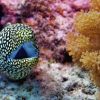The idea that vitamin D supplements can reduce susceptibility to, and the severity of, Covid-19 is seductive – it offers a simple, elegant solution to a very complex and lethal problem. But analyses encompassing large European datasets suggest the enthusiasm for the sunshine vitamin may be misplaced.
Two still to be peer-reviewed papers looked at the link between vitamin D levels and Covid-19 and both reached the same conclusion: evidence for a direct link between vitamin D deficiency and Covid outcomes is lacking.
Quick guide Let’s get physical: how exercise could help boost your response to a Covid vaccine
Show
Hide
Could a short workout increase your protection from Covid-19? While many immunologists have been studying the role of stress in vaccine responses, some researchers have turned their attention to exercise, with some intriguing results.
Consider the following experiment by Prof Kate Edwards at the University of Sydney, who asked a group of young adults to perform some bicep curls and lateral raises for 25 minutes, around six hours before they received an influenza vaccine. As hoped, these people showed an elevated immune response to the injection over the following 20 weeks, compared with participants who had rested on the day of the shot. Confirming these beneficial effects, Edwards later found that exercise could also enhance responses for the pneumonia vaccine.
Besides increasing efficacy, a short workout could calm the side-effects of a vaccine. Performing 15 minutes of upper-body exercise – before or after the injection – has been shown to reduce the swelling and fever that sometimes come from the HPV vaccine, for example.
How could this be? One possibility is that the slight wear and tear on our muscles, as we exercise, can itself trigger a mild reaction in the immune system. When the vaccine is delivered, the body is therefore well prepared to deal with the antigen within the injection more efficiently – boosting its vaccine’s benefits while reducing the potential discomfort.
Was this helpful?
Thank you for your feedback.
One set of researchers mined a database of hundreds of thousands of mostly white participants to understand whether giving them vitamin D could decrease their probability of having symptomatic or severe Covid.
Researchers looked at the records of people with certain genetic markers that make them predisposed to vitamin D deficiencies, something that is not influenced by factors such as age and other underlying conditions. They found no evidence for the idea that supplements protect against Covid.
Another study compared the prevalence of vitamin D deficiency in 24 European countries to Covid infections, recovery and mortality data.
Lead author, Dr Michael Chourdakis, from Aristotle University, Greece, said the analysis avoided the methodological limitations of previous studies by only using recent data on vitamin D, and did not only include subsets of the population, for instance, people in nursing homes.
In addition, instead of using mean vitamin D levels, which can be distorted by certain parts of a population having very high or very low concentrations, they specifically looked at levels of deficiency.
“There is an overloading of information about vitamin D benefits … vitamin D has been praised for too many things,” he said, “even though we have very limited data for that.”
He added that the study was methodologically solid and the data showed no significant correlation between vitamin D and Covid infections, recovery or mortality.
Those that traditionally exhibit vitamin D deficiency – older adults and minority ethnic populations – are the same groups that have been disproportionately affected by Covid-19. Protracted lockdowns and subsets of the population shielding has also enhanced time spent indoors away from sunlight. And in general, vitamin D has been implicated in helping the immune response to respiratory infections – so supplements feels like the intuitive answer.
But the evidence on Covid so far – although some of it is positive – is circumstantial. Some researchers argue it is not robust enough to favour a policy of giving the whole population supplements, particularly given the impact that might have on individual behaviour and possible negative physical side-effects from taking too much.
In a recent review, the National Institute for Health and Care Excellence (Nice) agreed, finding evidence for vitamin D supplementation with the aim of preventing or treating Covid was still lacking and that further research was needed.
“We’re scientists – we believe in data. We feel that the data today suggests that vitamin D will not protect against Covid outcomes. We would be happy to entertain any data that suggests otherwise,” Dr Brent Richards, a clinician-scientist from McGill University focused on endocrinology, epidemiology and biostatistics who is one of the authors of the genetic study.
“But it’s important to remember that in the field of vitamin studies there is a familiarity of the general public with vitamins and a high level of trust that we don’t see with other kinds of interventions. So, people very much want this solution to be a vitamin-based solution – and sometimes that’s not always the case.”
A recent case in point is a study from scientists from the University of Barcelona that suggested giving high-dose vitamin D to coronavirus patients when admitted to hospital could cut deaths by a staggering 60%, prompting calls by former Brexit secretary and MP David Davis for the therapy to be rolled out in hospitals.
But some scientists pointed out that while the data is presented as a randomised trial of vitamin D supplementation, it appears individuals were not randomised, wards in the hospital were. Different wards tend to take different patients depending on their level of illness and risk.
Eventually, the study – that had not been peer-reviewed – was removed from the server of the medical journal The Lancet as a result of concerns that kickstarted an investigation into the paper.
Meanwhile randomised controlled trials designed to definitively answer whether vitamin D status plays a direct role in Covid infections and outcomes are ongoing. “What we lack at the moment is really a definitive trial which demonstrates a cause and effect relationship,” said Adrian Martineau, a professor of respiratory infection and immunity at Queen Mary University of London, who is leading such a study.
“You can’t dismiss the circumstantial evidence …[but] it’s not the highest level of evidence. I guess there’s a philosophical question – if you have an intervention that has a good chance of working and is completely safe, why not implement it, while you’re waiting to find out given the public health emergency?”





















































Свежие комментарии